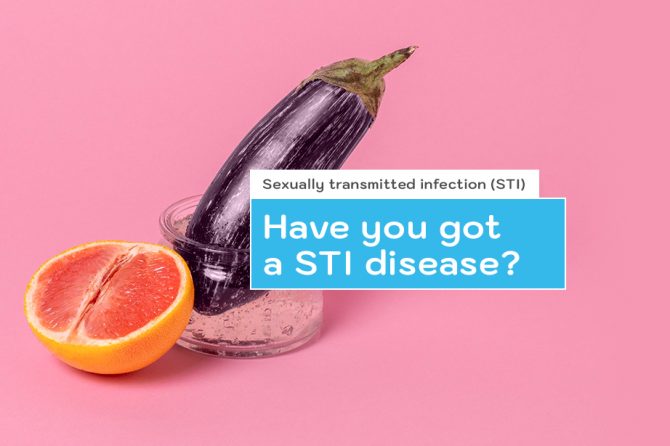Have You Got a Sexually Transmitted Disease?
It’s a tricky situation. You think you may have picked up a sexually transmitted disease (STD) but you don’t really want to go to a doctor about it because, you know, it’s a bit embarrassing and you think it might involve an examination of your genitals. Maybe you also don’t want to tell your friends. Or your family.
OK. Let’s go through the process. Why do you think you might have an STD? Some of the possible reasons are:
- You had unprotected sex with someone, orally, anally or vaginally (is that a word?).
- You used a condom or dental dam but it broke or got lost in all the excitement.
- You used protection, but you still think something’s not right.
- You heard rumours later that your sexual partner may have been infected.
- Essentially, you shared fluids or had skin-to-skin sexual contact with someone and now you’re a bit worried.
Also check our collection of sexual health myths to be sure of what’s risky and what isn’t.
Got symptoms?
There are many possible symptoms associated with STDs, from a simple headache to unpleasant discharges and various pains. See our Symptom Checker for a rundown of which symptoms can be connected with which infections.
On the other hand, many STDs don’t show symptoms – or symptoms may appear after some weeks. Just because everything seems perfectly normal down below doesn’t mean that you haven’t caught something. Some people assume that there’s no infection, but it can stay and develop in the body, causing bigger problems later or during pregnancy and birth.
Try a discreet test
So you’re in a position where you may or may not have symptoms and maybe you don’t want to see a doctor just yet, especially if you have nothing to reveal except that you had unprotected sex. Something you can do is take an at-home test.
The beauty of an at-home test is that you can order it by post, do the test without anyone knowing and send it off to a lab to receive online results that only you can access via your phone. We offer a selection of STD tests so you can get peace of mind on where you stand and what you can do about it. Browse and order your tests here.
Next steps
If your test is positive, we will offer you advice and guidance on your particular test results. We can also put you in touch with organisations that specialise in certain STDs as well treatment options. If you’d like to know more about a specific infection, we have some downloadable guides. Alternatively, give us a call or join us on webchat.
It would also be a good idea to advise recent partners that they may have the same infection, whether or not they have any symptoms. With your newfound knowledge, you’ll be better prepared to explain to them what they need to know.
Unfortunately, having and being treated for an STD doesn’t meant that you can’t catch it again. Every time you have unprotected sex, or sex where skin is touching, there’s a possibility to be re-infected. Take a look at our post on safe sex to minimise the risks. Sex shouldn’t be a stressful activity, so it’s worthwhile getting informed about the various ways to avoid infection.
If your lifestyle involves or may involve frequently changing sexual partners, we recommend that you get tested for STDs at least every three months – more frequently if you notice any symptoms or later believe your partner may have symptoms. Some STDs have an incubation period, which vary between diseases, so it doesn’t always make sense to get tested immediately after unprotected sex. See our fact pages here to know typical incubation periods.
Nobody wants to have an STD. Fortunately, we can minimise the risks, stay healthy and keep the stress out of sex by being informed and doing regular checks when necessary. We believe it’s important to spread good information to help everyone make informed choices.
Stay healthy and have fun!


Leave a reply